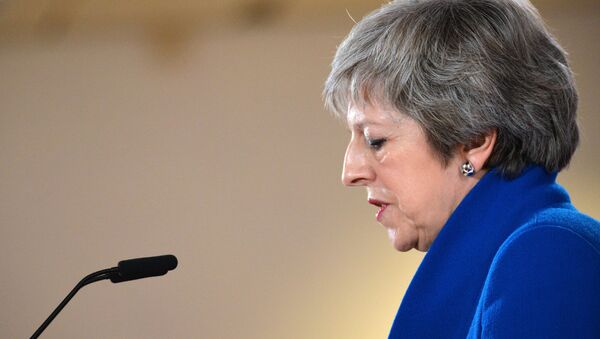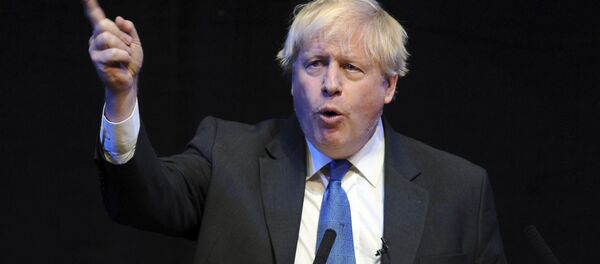Theresa May was born on October 1, 1956 in the UK south coastal city of Eastbourne in the country of East Sussex in the family of an Anglican priest.
She graduated from the St Hugh’s College at the University of Oxford in 1977 with a BA degree in geography.
In that same year, the UK prime minister began her career working at the Bank of England before she moved on to the Association for Payment Clearing Services, and worked there as Head of the European affairs unit from 1989 to 1996 and then as Senior Adviser on international affairs from 1996 to 1997.
READ MORE: WATCH Theresa May's Voice Break as She Nearly Cries Announcing Resignation
From 1986 to 1994, May held various posts at the council of the London Borough of Merton.
She was elected to the House of Commons, the lower house of the UK parliament, for Maidenhead constituency from the Conservative party in 1997.
Her career in the UK cabinet started in 1999, when she was appointed as the shadow secretary of state for education and employment.
Until 2010, May held various positions in the shadow cabinet, such as the shadow secretary of state for transport, local government and the regions, the shadow secretary of state for the family, the shadow secretary of state for culture, media and sport, and the shadow leader of the House of Commons.
Her success continued when the Conservatives won a parliamentary majority in the 2010 general election and May became the UK home secretary, a post she held until 2016. May also was appointed the minister for women and equalities on the same day, but resigned from the position in 2012.
On June 23, 2016, the United Kingdom held a referendum to determine whether the country should leave the European Union. According to the final results, 51.9 percent of voters, or 17.4 million people, decided to support Brexit, while about 16.1 million opposed the exit.
READ MORE: European Stocks Tumble Amid PM May Leadership Bid, Brexit, US-China Trade War
After the results of the referendum were announced, then Prime Minister David Cameron, who campaigned against Brexit, announced his resignation.
On July 11, the Conservative Party confirmed May as the new party head, paving the way for her to become the next prime minister.
May was appointed the UK Prime Minister by Queen Elizabeth II on July 13, becoming the second woman who has held the highest government post of the United Kingdom after Margaret Thatcher. The Conservatives’ leader also became the first female UK prime minister of the 21st century.
May lost the support of her cabinet because of the situation with Brexit.
According to the latest agreements with the European Union, the United Kingdom must leave the EU no later than October 31.
May made an announcement in March, 2019 that she would step down after the parliament approved her Brexit deal. According to her, a new approach and new leadership are needed during the second stage of negotiations with the European Union.






